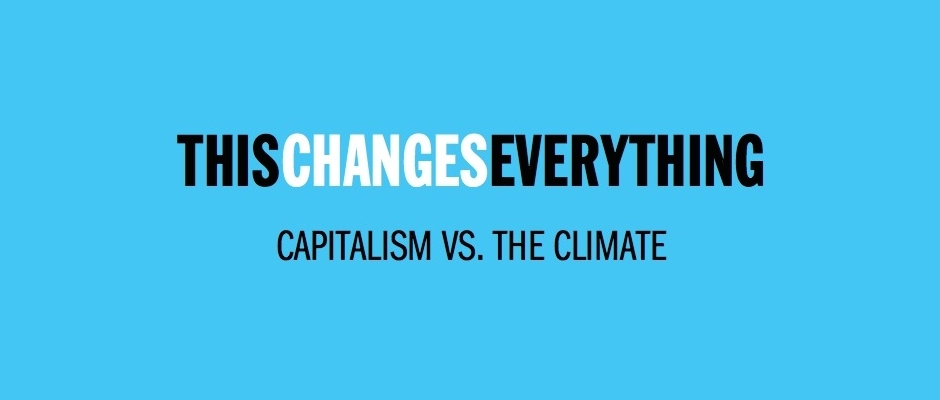On university campuses across the world, students are pushing for divestment of endowment funds from industries they see as unsavoury. Divest McGill, the student-run divestment campaign targeting the investments of our university’s 1.4-billion-dollar endowment in the oil industry, has been a prominent part of student activism since 2012. With the currently ongoing sit-in at McGill Principal Suzanne Fortier’s office, Divest McGill, and its principal cause – divestment from fossil fuels – has once again become a hot-button issue on campus. Principal Fortier’s latest statements reject the demands of Divest McGill and echo the Committee to Advise on Matters of Social Responsibility’s (CAMSR) finding that fossil fuel companies do not qualify for divestment on the basis of ethics.
Divestment initiatives seek to politicize the investment process. The goal of the McGill Board of Governors’ Investment Board is to:
“[O]btain a total return (yield plus capital appreciation) necessary to provide a dependable and optimal source of income for endowment beneficiaries, to cover the annual operating costs of the Endowment and to preserve (in real dollar terms) the capital of the Endowment within the social and ethical norms of McGill.”
This mandate gives two goals that are necessarily in tension with each other: investing with return in mind, and investing with ethics in mind. For obvious reasons, funds traditionally make all of their investment decisions with the goal of maximizing expected return. Any decision that is made for another reason, like ethics, is necessarily not an expected-return-maximizing choice. The fact that there is a direct tradeoff between these two goals is important to remember. Investment funds first and foremost have what is known as a fiduciary duty to their beneficiaries: the responsibility to act in their financial best interest. This fiduciary duty should only be superseded by other aims in extreme circumstances: fossil fuel investment does not qualify.
CASMR’s evaluation of what passes this ethical line, and therefore, Divest McGill’s campaign hinges on the standard of “grave social injury.” Proponents of divestment point both to the scientifically undisputed effects of fossil fuels on climate change and to the direct effects of exploration on the environment and on indigenous populations. However, focusing on the impact of fossil fuels through supply-side (extraction and production) ignores a broader societal context.
Companies targeted by the divestment movement are in the business of finding, extracting, and transporting a commodity that is highly demanded worldwide. By and large, these companies are staffed by ethical employees, and these companies spend their capital searching for ways to deliver us oil – all with greater safety, efficiency, and with minimum environmental impact. Oil companies are not an enemy that we need to attack. Rather, they work within the system to enable us to maintain our standard of living. You would be very hard-pressed to find a single product we use today that didn’t require fossil fuels at some point in its production or transportation. As consumers, we are all complicit in “wrecking the planet, ” (as Divest phrases it). I am unequivocally for moving away from fossil fuel dependence, but in the meantime, demonizing companies who provide us with what we so clearly demand strikes me as hypocritical. Far from being outside the “social and ethical norms of McGill,” fossil fuel extraction has provided the foundation for the university we attend, and country we live in. One can both detest our dependence on oil, and recognize the reality that it is a large part of what enables the western standard of living. Divestment makes sense only as a small part of a larger campaign to find a reasonable alternative to fossil fuels.
We are not in a position to move away from fossil fuels to the degree that Divest McGill demands: as CAMSR correctly points out, “the beneficial impact of fossil fuel companies offsets or outweighs injurious impact at this time.”
Entering politics into the investment process sets a dangerous precedent. Though this precedent was breached when McGill decided to drop investments in tobacco firms, the investment board has nonetheless laid out a clear criterion defining the line of “grave social injury” that must be crossed. It is understandable how tobacco companies – that fuel the deadly addiction of a shrinking portion of our population – cross this line. However, it is less clear in the case of oil companies. Deeming that companies supplying a product used by everyone in our society to be outside current ethical and social norms is a step in the wrong direction. While Divest attempts to use evidence of legal wrongdoing as a proxy for social injury, the fact is that nearly every industry- from pharmaceuticals to financials- has faced legal censures of similar magnitude. Principal Fortier is correct in saying that holding companies to an ethical clean-slate is an unrealistic way to make investment decisions.
The effort thrown behind the divestment campaign, when compared with other initiatives to work towards a greener future, is puzzling. From a capital markets perspective, divestment has no impact on the behaviour of its targets. Even members of the divestment campaign agree that it is a solely symbolic gesture. There are companies with far more powerful opposition movements – think tobacco companies and African gold miners, who continue to enjoy low borrowing costs and rising share prices. This is a minimum level of agreement that must be reached in order to have a productive discourse: anyone who thinks that divestment will have a direct impact on the behaviour of oil companies is deluded.
While symbolism can be powerful, investment funds should not be treated as a political tool to be leveraged for policy gain. The mandate of the investment board is to invest to maximize returns given the constraint of ethics, not to use their capital as a soapbox. In their report, CASMR cites Harvard president Drew Faust’s remarks that: “Conceiving of the endowment […] as a tool to inject the University into the political process […]can entail serious risks to the independence of the academic enterprise.” If we concede financial stability to political symbolism, the sole victim is the institution we all are members of: McGill itself.
Furthermore, a fight over a symbolic gesture is a poor battleground for campus activists. McGill has appeared willing to commit real resources to student environmental causes. Examples include the establishment of the Sustainable Project Fund and ECOLE. As CAMSR acknowledges, McGill has significant resources at its disposal that could be leveraged to support a transition away from fossil fuels through research, public awareness, and green initiatives on campus. CAMSR’s report, which was decried by Divest, even made its own recommendations on ways to achieve this goal: they suggest the creation of a socially responsible investment fund and the investigation of investments in alternative energy. Activists should work with the McGill administration and Principal Fortier on projects that have a real impact, rather than treating them as the enemy in a standoff over a symbolic gesture.
When there are so many real problems facing the world (including the environment!) it is a shame to spend human and political capital on a campaign that is, at best, symbolic. Let investments be for the sake of investment: we can surely find a more relevant way to promote a greener society. Smart people around the world are working on effective ways to move away from oil-dependence; divestment should be last on the list.








If looking at the supply side damage of oil gives an incomplete information then divesting from tobacco companies by purely looking at demand side damage (which is why McGill divested from Tobacco) is also poor judgement. Because while addiction to tobacco is injurious to society, supplying the said addiction creates thousand of jobs for tobacco farmers starting all the way from Alabama to Zimbabwe. On the other hand the supply side damage from oil, includes the destruction of Nigerian water systems, catastrophic damage to the Sundarbans and gulf of mexico and the millions of gallons of oil that have been spilled damaging our pristine ocean ecosystems, just to name a few.
Sounds like what you’re saying is that you’re ok with the catastrophic damage that oil extraction has on developing countries and their inhabitants because it helps you maintain your first world lifestyle but when it comes to tobacco, even though its harvesting is mostly beneficial to developing countries, you are for divestment because it is “injurious to society” .
And N.B. arms manufacturers are also full of ethical and good engineers/chemists/physicists who just want to further their science. So i’m pretty sure you woudn’t have a problem investing in arms manufacturers and munition companies either.